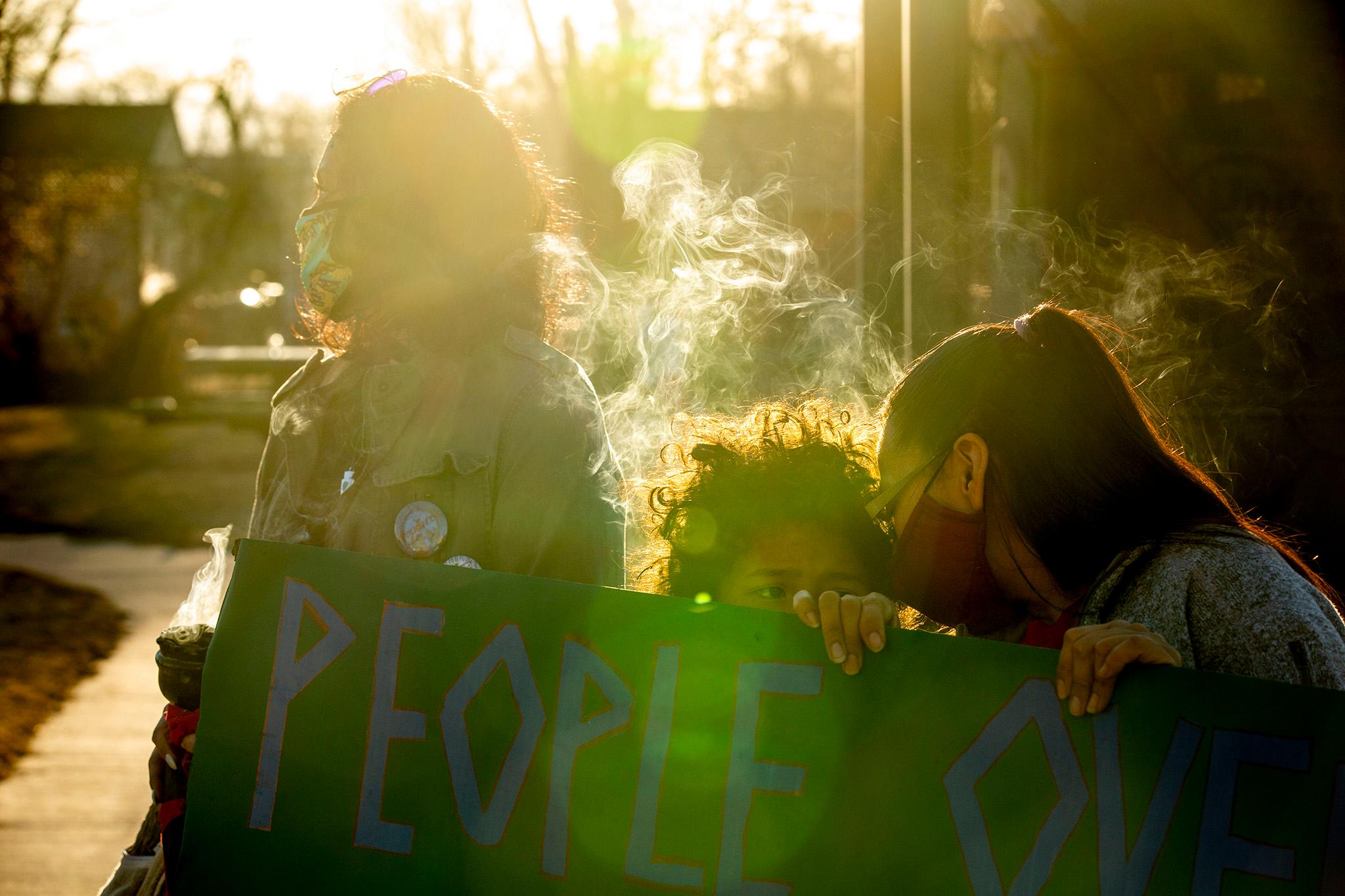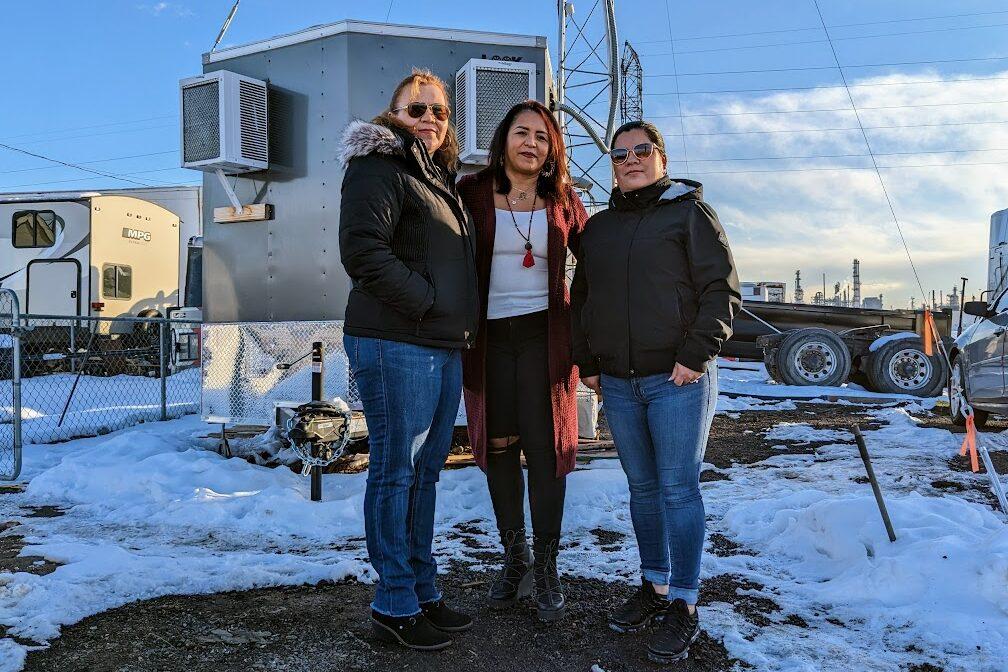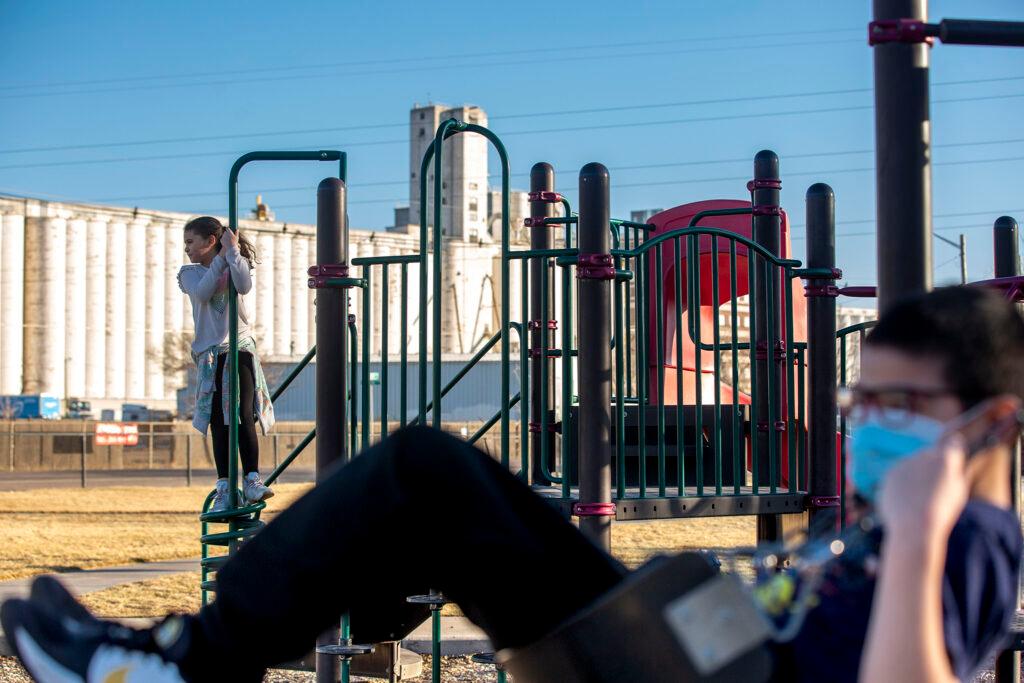
The instruments are shut off. Real-time air quality results aren't being posted online. And the Colorado nonprofit behind a groundbreaking pollution-tracking project is calling it quits.
After declining a $500,000 grant from the U.S. Environmental Protection Agency, Cultivando, a Latino-led health advocacy group, pulled the plug on a pair of air monitors operating in north Denver and Commerce City last week.
The decision marks a surprising end to Colorado's most visible community air monitoring project. Many groups are now launching similar efforts to advocate for underserved or marginalized residents by collecting data on local environmental threats. Cultivando’s project has tracked pollution in neighborhoods heavily impacted by Suncor Energy’s oil and gas refinery and other nearby industrial sites for more than a year.
Olga Gonzalez, the executive director of Cultivando, said there were simply too many strings attached to the EPA grant. Rather than meet the conditions, her board decided to drop the project and focus on direct environmental advocacy.
"The results of the monitoring were not surprising to anyone," Gonzalez said. "The community wants us to focus on uplifting their voices to inform policymakers about our needs."
A leading community air monitoring project
Initial funding for the air monitors came from part of a $9 million settlement Suncor Energy paid state regulators in 2020 to resolve a long list of air quality violations.
Cultivando hired Boulder A.I.R., a local air quality contractor owned by atmospheric scientist Detlev Helmig, to conduct the monitoring. The company currently operates six other sites to track local air pollution on behalf of Front Range communities.
In north Denver and Commerce City, Helmig set up one stationary site near the refinery and another mobile monitor that could be relocated to track pollution in other locations.

The nonprofit released results from the first year of monitoring in March 2023. It confirmed residents living near the refinery breathe more harmful air pollutants like benzene and particulate matter than other communities along the Front Range. In addition, the results suggested the Suncor facility could be a consistent source of airborne radioactivity.
Both Suncor Energy and state regulators noted their own monitors showed air quality levels were below federal health limits. Cultivando, meanwhile, argued the state and federal legal standards hadn't kept up with the latest air quality research and helped the group argue its results provided a clearer picture of the health threat endangering local residents.
Those findings won headlines from local news outlets across the state, but funding struggles had already drawn the project’s future into question.
How the project ended
Last November, the EPA awarded the group a $500,000 grant to help Cultivando continue the monitoring project, part of more than $53 million in funding for 132 community air monitoring projects across the country. A press release noted those grants amount to the largest investment in community air monitoring in the history of the federal agency.
But Gonzalez said the grant came with unfair stipulations.
The funding required a competitive bidding process for an air monitoring contractor, potentially severing Cultivando's relationship with Boulder A.I.R. In addition, Gonzalez said only $40,000 of the grant money could be spent on general community education, which she felt didn't align with the project's true costs.
In a statement, EPA spokesperson Richard Mylott said the agency gave Cultivando an opportunity to modify the grant to account for more staffing. He further suggested Cultivando wanted wiggle room around specific air quality data standards.
"EPA cannot waive quality assurance requirements intended to ensure valid air quality data are collected, nor can we waive accounting and documentation requirements that ensure federal funds are used appropriately," Mylott said.

Helmig, the scientist hired to lead the monitoring, said he learned the nonprofit would drop the project less than two weeks ago. He said he was disappointed Cultivando hadn't reached out earlier to ask for help with the EPA.
The project’s air monitoring equipment has been mothballed as he searches for a new funding source. So far, Helmig has not secured new funding from the state government or local communities, but said conversations are ongoing. He doesn’t expect any support from the industry.
EDITOR’S NOTE: This story has been updated to remove a quote from Detlev Helmig and clairify his conversations with potential sources of funding for continued air monitoring.







